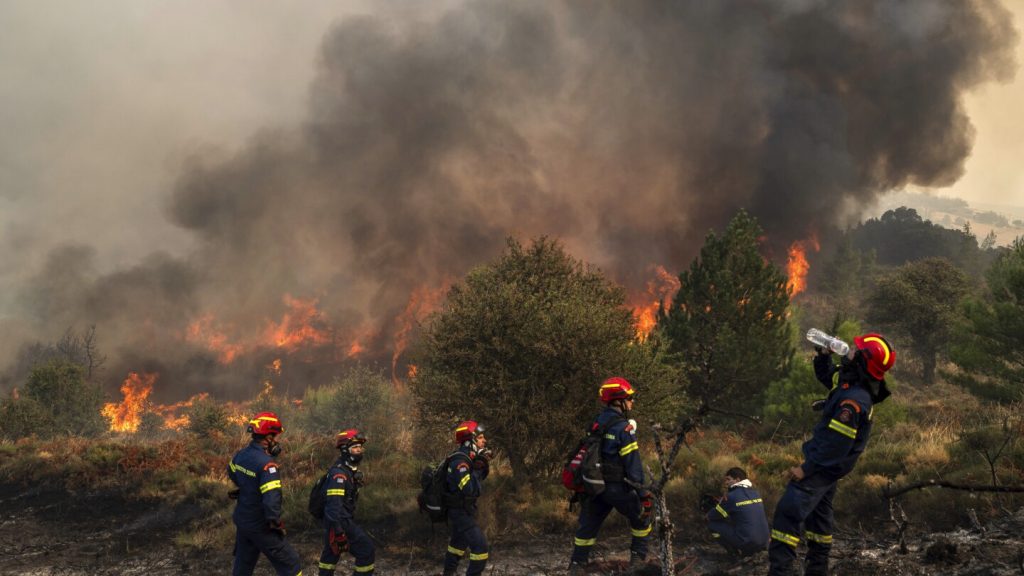The wildfires in southern Greece have been raging for three days, causing devastation and claiming the lives of two individuals. The firefighting efforts have been intense, with over 400 firefighters and 22 aircraft battling against the blaze in the mountainous region of Corinthia in the Peloponnese. Assistance from other European Union countries has been requested, with two waterbombing aircraft from Italy already joining the operation and a third plane from Croatia expected to arrive soon. Despite progress made in containing the main front of the fire, there is concern that strong winds could reignite the flames.
Greece’s minister for climate change and civil protection, Vassilis Kikilias, expressed the severity of the situation, stating that up to 5,000 hectares (12,300 acres) of land have been affected by the wildfire. This year’s wildfire season started earlier than usual in April and has extended well into the fall, with a total of 41 wildfires breaking out across the country in the past 24 hours. The challenging terrain and poor road network in the area have hindered the firefighters’ efforts, particularly during the initial stages of the blaze. Government spokesman Pavlos Marinakis highlighted the difficulties faced by firetrucks in approaching the fire due to narrow roads, ravines, and strong winds.
Evacuation orders were issued for multiple villages in the affected area as a precautionary measure, with another village being evacuated on Tuesday. The destruction caused by the wildfire includes a historic church in the mountains and damage to buildings outside the threatened villages. The fire service reported that two local residents lost their lives after being trapped by the fast-advancing flames late on Sunday. The impact of global warming has exacerbated the wildfires in Greece, with this year’s fire season experiencing the highest number of wildfires ever recorded in a single season. Despite the challenges posed by the ongoing wildfires, Greece has made significant investments in firefighting equipment, leading to the swift extinguishing of most blazes soon after they ignite.
As the fire continues to pose a threat to the region, the support and solidarity from other countries in the European Union remain crucial. The cooperation among firefighters, volunteers, and aircraft from various nations underscores the united effort to combat the wildfires in Greece. The early start and prolonged duration of this year’s wildfire season serve as a stark reminder of the impact of climate change on natural disasters. Efforts to mitigate the effects of wildfires, including improved infrastructure and enhanced firefighting capabilities, are essential in protecting lives and preserving the environment. Despite the challenges faced by Greece in battling wildfires, the resilience and dedication of all those involved in the firefighting efforts signal a united front in confronting this natural disaster.


